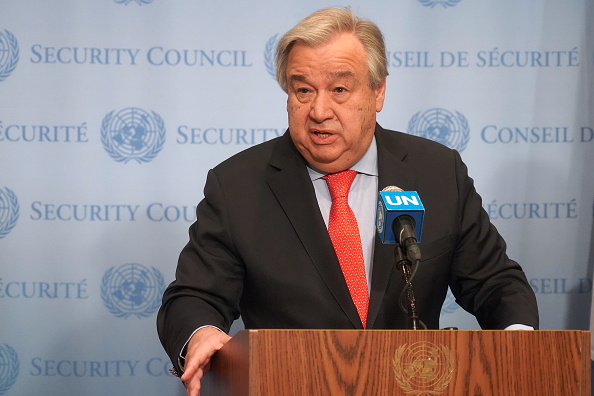
UN Secretary-General sends condolences to families of victims of Cyclone Kenneth

The United Nations Secretary-General Antonio Guterres sent his condolences to the families of the victims of Cyclone Kenneth and to the Governments and peoples of Mozambique and Comoros.
In a statement on the UN website, the Guterres said he was deeply saddened at reports of loss of lives and destruction in Mozambique and Comoros as a result of the tropical cyclone.
Guterres added that the United Nations and humanitarian partners are supporting the national authorities in assessing needs and providing assistance.
Authorities have said at least five people died after Cyclone Kenneth arrived Thursday evening with the force of a Category 4 hurricane, stunning residents of a region where such a storm had not been recorded in the modern era. Kenneth came just six weeks after Cyclone Idai ripped into central Mozambique and killed more than 600 people.
The remnants of Kenneth could dump twice as much rain as Idai did, according to the United Nations World Program. It was the flooding after Idai that caused most of the deaths. As much as 250 millimeters (9 inches) of torrential rain, or about a quarter of the average annual rainfall for the region, is forecast over the next few days.
This was the first time in recorded history that the southern African nation has been hit by two cyclones in one season, again raising concerns about climate change.
Nearly 700,000 people could be at risk in the largely rural region, many already exposed and hungry. Some rivers in the region have burst their banks in the past, notably in 2000.
Aerial photos taken on Saturday showed several coastal communities flattened by the storm in Mozambique’s northernmost Cabo Delgado province.
With about 3,500 homes in parts of Cabo Delgado partially or fully destroyed, families waded to what they hoped were safer areas or huddled under impromptu shelters.
Already, livelihoods have been lost and people are wondering how they will cope in a country struggling with one of the world’s highest poverty rates.






